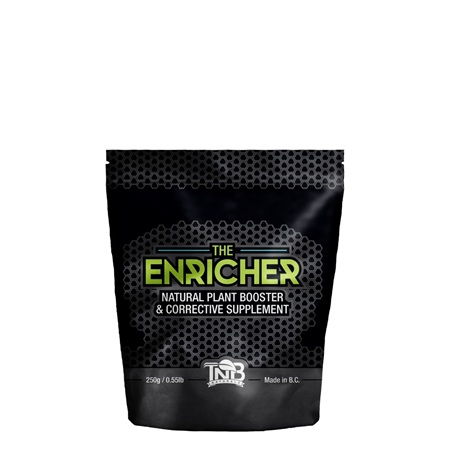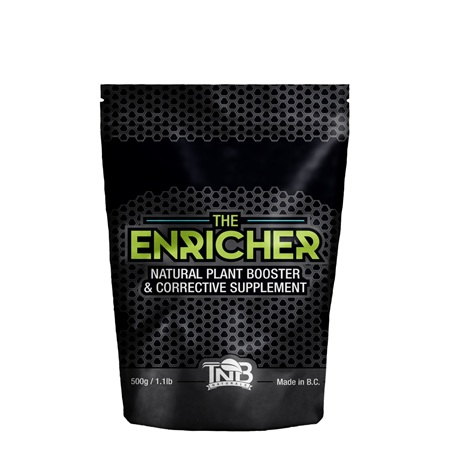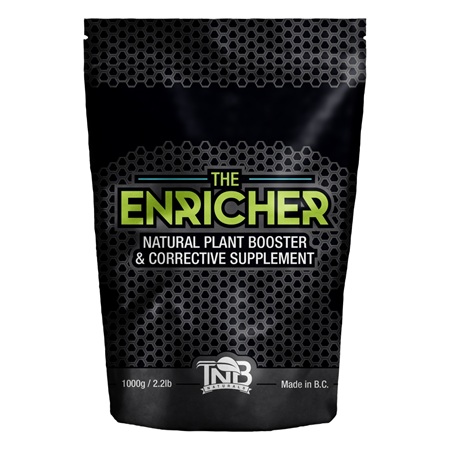


Plant boosters are slightly different from fertilizers. While most fertilizers contain nitrogen, phosphorus, and potassium, many gardeners don’t know about the important role that micro-nutrients can play in a plant’s development and performance. Boosters target specific aspects of plant development and growth, usually through the application of micro-nutrients. The Enricher by TNB Naturals is a booster that provides a unique combination of magnesium and citric acid to plants and both are critical in plant development.
Effects of Magnesium in Plant Development
Magnesium is an element that powers and develops chlorophyll production. It’s critical to proper chlorophyll and chloroplast development in plants because magnesium forms the central core of every chlorophyll molecule. If you lack magnesium in your plants, you lack chlorophyll, which means that your plant will be unable to properly convert light energy into chemical energy.
While light capture is the most critical role magnesium plays in plant health, it is by no means limited to chlorophyll. Magnesium also cross-links pectins (a polymer found in cell walls), which in turn contribute to membrane integrity and overall cell adhesion. Magnesium also competes with potassium and calcium to keep the ionic balance of the interior of each plant cell in check.
If your plants are dealing with a lack of magnesium, you’ll begin to see a phenomenon called interveinal chlorosis emerge on your plant leaves. This is a yellowing of the leaf while the veins remain green. Interveinal chlorosis is caused by a deficiency in chlorophyll production, which is prompted by a decrease in accessible magnesium. If a plant is unable to access an adequate amount of magnesium in its growing environment, it will begin to divert magnesium towards young leaves, letting older leaves die.
There’s a lot of complicated chemistry that happens as magnesium is absorbed through a plant’s root system and incorporated into a chloroplast. The important bit to remember is that without magnesium, your plant will not be able to convert light into food.
Effects of Citric Acid in Plant Development
Citric acid, a natural organic acid found in plant tissues, also plays an important role in soil health. Primarily, citric acid improves soil health through its function as a chelating agent. Chelation involves binding metal ions into soluble, stable complexes. Once completed, this process significantly increases the ability of a plant to absorb important nutrients from the soil.
Many important micronutrients found in the soil tend to be initially insoluble to plants – think of iron, zinc, and copper. Citric acid has the ability to bind to metal ions in the soil, creating a complex that can be more easily absorbed by a root system.
Additionally, citric acid can improve soil structure indirectly by stimulating microbial activity. Soil microbes are eager to metabolize citric acid. The more active microbes become, the more quickly organic matter will decompose. Soil aeration is another beneficial effect of high microbe activity.
The Enricher is a simple, easy-to-apply booster that uses non-synthetic chemicals to target some often-neglected aspects of plant development. It can be applied throughout the grow cycle and can trigger increases in flavor and resilience.

Visit TnbNaturals.com for more information on The Enricher and other products from TNB Naturals.


Comment here